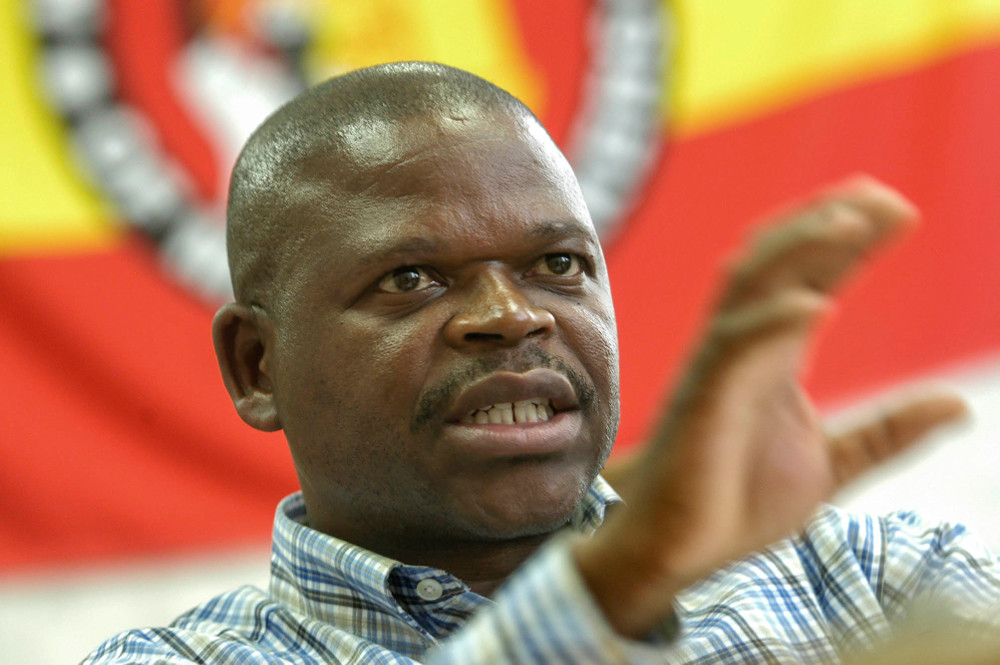The National Union of Mineworkers is no longer Cosatu's largest affiliate.
Three of the top six leadership positions in the National Union of Mineworkers (NUM), including that of the incumbent general secretary, Frans Baleni, will be contested at the union’s national congress next week.
Two regions – the North East (Limpopo) and PWV (Gauteng) – have nominated the Free State regional secretary, David Sipunzi, to stand against Baleni for the powerful position of general secretary. The PWV is the largest of the union’s 11 regions and the North East is the third largest after Rustenburg.
Baleni has been general secretary for nine years and, if he wins, will serve the union for a fourth term.
It’s expected that the acting NUM president, Piet Matosa, will not be challenged and will be elected as president. He served as NUM deputy president from 2009 and became acting president after Senzeni Zokwana was appointed agriculture minister last year.
The Carletonville regional secretary, Mbuyiseni Hibana, will square up against his counterpart in Matlosana (Klerksdorp), Joseph Montisetsi, for the deputy president position.
The secretary of the North East, William Mabapa, will challenge the current NUM deputy general secretary, Tshimane Montoedi.
The nomination for candidates closes on Friday.
The current NUM leadership has been blamed for the fragmentation of the union, which saw the emergence of the Association of Mineworkers and Construction Union. Documents to be presented at the congress will reveal that the NUM has lost nearly 100 000 members over the past three years, and more than 50 000 of those in the Rustenburg region alone. The union has lost more than 17 000 members in the gold mines of Carletonville.

NUM general secretary Frans Baleni.
As a result, the union recorded a deficit of R15-million in 2013 and R27-million in 2014.
Not only did the union lose its dominance in the platinum sector, it also lost its prestigious position as the largest affiliate in the labour federation Cosatu. The loss in membership means the NUM’s subscription fee to Cosatu is likely to decline by more than R3-million a year.
“The union is bleeding. We have been losing members left and right. As a result, we have been spending more than the income over the past three years,” said an NUM leader, who asked to remain anonymous for fear of reprisals. “Luckily, the union has got reserves of over R250-million and several investments. That’s how we managed to survive.”
Fresh ideas
An NUM regional leader, who also serves on the union’s national executive committee, said the union needed new leaders with fresh ideas to take it forward.
“How do you bring back people who led the union when it lost so many members? We don’t blame an individual. The organisation is about teamwork. But leadership style has an impact,” he said. “This is something we can’t run away from.
“The current leadership favoured some regions of NUM over others. When a person is managing people that way, there will be a problem.”
But another regional leader sympathetic to Baleni has argued for the current leadership to be retained.
“Most regions say we can’t afford to contest each other during this trying time. We cannot afford to lose the general secretary soon after we lost the president. We are under attack. We never lost such a huge number of members before. We must regain lost ground and become the strong and powerful union that we used to be.”
The NUM’s acting spokesperson, Livhuwani Mammburu, said it was for the delegates to decide whether they still wanted Baleni to lead the union, which he has been with since 1982.
“Frans Baleni has been given a clear mandate by the members of the NUM to serve in his current position and he will continue serving them until they decide otherwise. NUM is a democratic organisation and any member who qualifies has a right to stand if nominated.”
Mammburu said the NUM was not a profit-making organisation and “serves the needs of its members based on resources at its disposal. The union has been spending a lot of its resources on servicing its members.”
But he denied that the union had lost more than 100 000 members.
“There have been job losses as a result of retrenchments, resignations, deaths in the mining industry and the completion of construction projects. Due to job losses and retrenchments, naturally membership will decline. The majority of job losses between 2012 and last year occurred in the gold and platinum mining. These amount to labour reductions of 16% [platinum] and 5% [gold].”